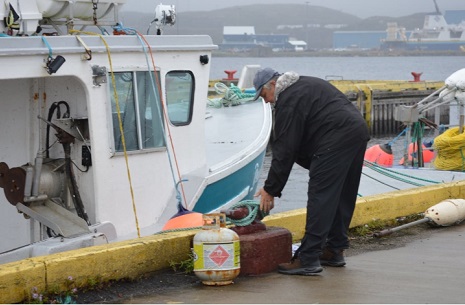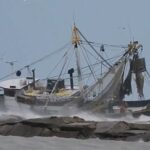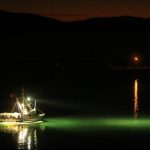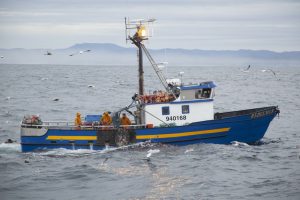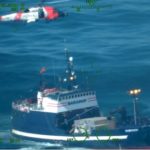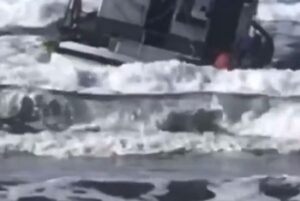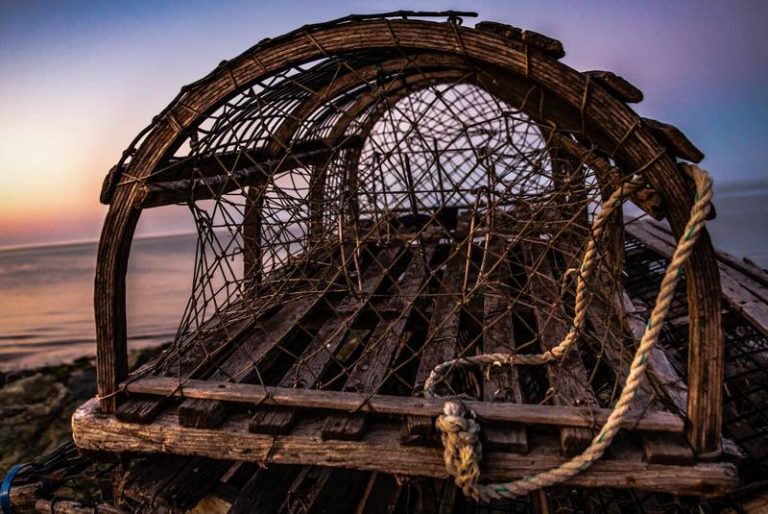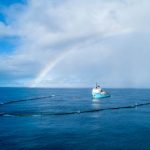Tag Archives: Newfoundland
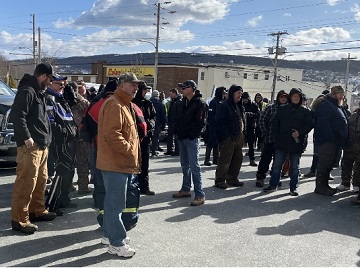
Protesting Fish Harvesters Interrupt Crab Price Setting Negotiations
The protesters fish in 3L, the area from Cape Freels to the southern Avalon. Instead of being one biomass, DFO has created two biomasses which protesters say leaves the inshore sector with less and the larger offshore boats with more. They accuse the union, the FFAW, of weak representation on the issue. Harvester Keith Boland says they’re upset about the way crab quotas are split. He says they have issued with the precautionary approach being taken and the way in which the department is dividing the biomass into inshore and offshore. “Years ago, there was no ‘inside 25 mile’….the crab moved in and the crab moved out,” He laments. “We’re not getting much science now.” >click to read< 13:22
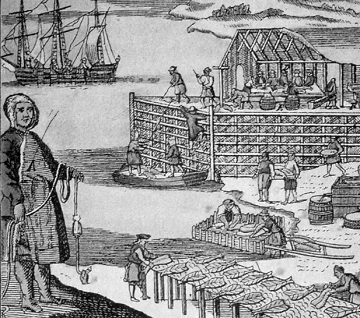
The Fishing Revolution and the Origins of Capitalism
Fishing is older than humanity. Fishing for sale rather than consumption developed along with the emergence of class-divided urban societies about five thousand years ago. Getting fish to towns and cities where people could not catch it themselves required organized systems for catching, cleaning, preserving, transporting, and marketing. This was particularly true in the Roman Empire, where serving fresh fish at meals was a status symbol for the rich, and fish preserved by salting was an essential source of protein for soldiers and the urban poor. In addition to boats, an extensive shore-based infrastructure was needed to provide fish for millions of citizens and enslaved people: “elaborate concrete vats and other remains of ancient fish-processing plants have been found all along the coasts of Sicily, North Africa, Spain, and even Brittany on the North Atlantic. The first surviving account of fish depletion caused by overfishing was written in Rome, about 100 CE. >click to read< 10:29

Jason Sullivan to run for FFAW Presidency
Bay Bulls fisherman and President of SEA-NL Jason Sullivan has announced plans to run for the top job at the FFAW-Unifor, despite long odds against a candidate unanimously endorsed by the union executive. “It’s easy to criticize, but you have to be willing to put your neck out there and offer the membership an alternative,” says Sullivan. “It’s time to change the course of the FFAW and regain the trust of the membership through communication and listening and acting on concerns.” >click to read< 10:05
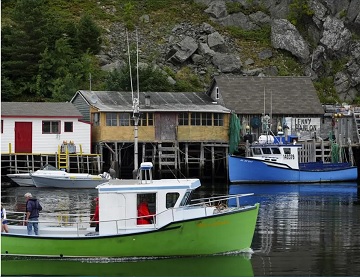
Newfoundland’s fishing towns were built to survive, but Fiona changed the game
For generations, Cory Munden’s family has been building and living on the same piece of oceanside land in the southwestern Newfoundland town of Port aux Basques. The town is a former fishing village, and like many of the houses destroyed by post-tropical storm Fiona on the morning of Sept. 24, the Munden family home was built by fishers. The land on which it stood was bought by Munden’s fisherman grandfather because it was close to where he worked, and it was protected by an offshore island. For 70 years, the houses on that land withstood the worst weather Newfoundland had to offer. Then Fiona hit. >click to read< 09:41
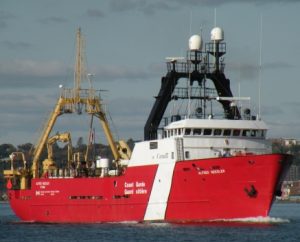
Repeated Failures: DFO ship woes hampering East Coast science surveys
DFO has missed multiple surveys as it struggles to bring new offshore fishery science vessels into service, and aging ships near retirement. Sailing restrictions imposed early in the COVID-19 pandemic contributed to the problem, but so too have breakdowns on older ships and part replacements needed on the two new ships stationed on the East Coast. The science surveys are used to assess the health of major fish stocks and are critical in determining quotas for commercial fisheries worth hundreds of millions of dollars in Atlantic Canada. “There’s huge consequences. We want to know what’s going on. We need the data,” said Carey Bonnell, vice-president of sustainability and engagement at St. John’s-based Ocean Choice International, which is a seafood company. >click to read< 08:13
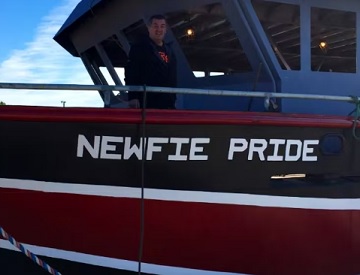
The last days of the F/V Newfie Pride
There were many nights he didn’t sleep. The numbers and scenarios turned over and over in his mind, making rest impossible. “I’d get up two, three o’clock in the morning, night after night, come out to the kitchen table and work the numbers every which way, trying to figure out how we could make it work,” Roland Genge told SaltWire this week. In the end, the Anchor Point fisherman realized it just wasn’t financially possible to keep going. So, the Newfie Pride, the family’s 60-foot shrimp trawler, is dry docked in Port Saunders on Newfoundland’s Great Northern Peninsula, sporting a fresh coat of paint and a For Sale sign. >click to read< 15:26
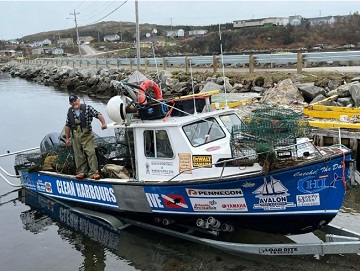
Snowsuits, bits of destroyed homes being scooped out of sea post-Fiona
Shawn Bath says his team has pulled an estimated 80,000 pounds of debris from Newfoundland’s waters in the month since storm Fiona’s destruction, mostly parts of people’s homes and personal belongings. Starting the week after Fiona hit, his team of up to five people has removed between two and six boatloads of debris per day. The storm destroyed dozens of homes in Newfoundland, sweeping many of them right out to sea along the 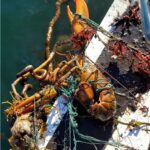 island’s southwest coast. Some things retrieved from the sea, like fishing gear, are being documented in the hope they can be returned to their owners, but Bath said much of it has been damaged beyond use. Bath’s team were able to untangle and free the lobsters before they perished. But he said there could be hundreds of other nets under the water with the potential to tangle and kill thousands of lobsters and other sea life. Photos, >click to read< 19:22
island’s southwest coast. Some things retrieved from the sea, like fishing gear, are being documented in the hope they can be returned to their owners, but Bath said much of it has been damaged beyond use. Bath’s team were able to untangle and free the lobsters before they perished. But he said there could be hundreds of other nets under the water with the potential to tangle and kill thousands of lobsters and other sea life. Photos, >click to read< 19:22
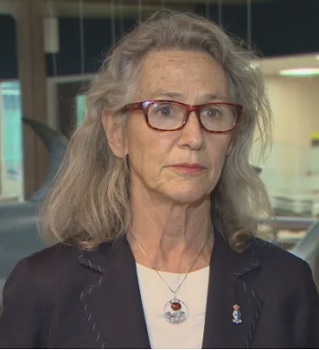
Feds tight-lipped on seal summit in Newfoundland
Five months after Canada’s Fisheries and Oceans minister Joyce Murray responded to the Atlantic Seal Science Task Team (ASSTT) report by saying she would hold a summit on seals there are few details about the event, other than the dates. The summit is being held in St. John’s, N.L., Nov. 8 and 9. So far there’s no word on the location of the summit, the lineup of speakers or panelists, or an agenda for the two days. A Sept. 23 release from the 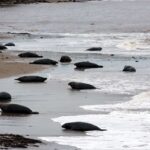 minister’s office offers very little information. That worries Bob Hardy, who was a member of the ASSTT. His main concern is that DFO appears to have organized the summit with little if any input from industry or stakeholders. >click to read< 15:53
minister’s office offers very little information. That worries Bob Hardy, who was a member of the ASSTT. His main concern is that DFO appears to have organized the summit with little if any input from industry or stakeholders. >click to read< 15:53
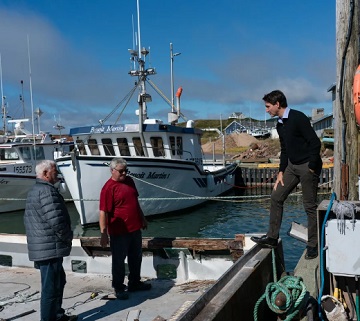
After Fiona’s wrath, Atlantic fishing communities look to rebuild livelihoods
All week, fishermen across Newfoundland, Prince Edward Island, Nova Scotia and New Brunswick were left to reckon with the damage left in Fiona’s wake, and to the region’s industry, which exports more than $4.5-billion worth of seafood each year. But as officials plan for the future, they face two competing priorities: the need to rebuild fast to be ready for the coming fishing season and the need to rethink infrastructure entirely in the face of climate change – a costlier, and potentially slower, approach. “PEI’s a mess. Newfoundland’s a mess. Nova Scotia’s a mess. And it’s all the same people who are fixing them,” said Leonard LeBlanc, President of the Gulf Nova Scotia Fishermen’s Coalition >click to read< 10:03
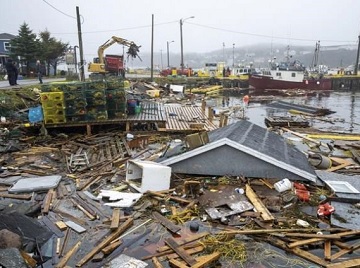
Newfoundland fishers face livelihood questions after Fiona storm damage
Colourful fishing stages bobbed in the water by Rose Blanche-Harbour Le Cou Tuesday as Cliff Bateman watched from his property. Days earlier, the picturesque buildings that are used to land and process fish were upright before post-tropical storm Fiona swept them into the ocean by the southwestern Newfoundland town. Bateman watched the storm toss them through the water. “It’s a big loss, I tell you that,” he said from inside his kitchen. The now-retired fisherman said he stored a priceless accumulation of gear and history inside the structures that were passed down through his family, some built over 100 years ago. >click to read< 10:08

Public Advisory: Hurricane Fiona Incident Command Centre Established; Registration Details for Canadian Red Cross
In the aftermath of Hurricane Fiona, an Incident Command Centre team has been established to assist communities in southwestern Newfoundland. For impacted individuals that are in need of supports, it is critical that they register with the Canadian Red Cross by calling toll-free at 1-800-863-6582 or visiting the emergency shelter at St. James Regional High School located at 200 Hardys Arterial Road, Channel-Port aux Basques. >click to read< 17:31
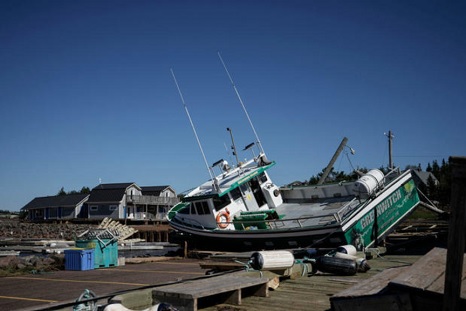
Body found as Canada struggles to restore power after storm – ‘Everything is unusable’
Hundreds of thousands of people in Atlantic Canada remained without power Sunday and officials said they found the body of a woman swept into the sea after former Hurricane Fiona washed away houses, stripped off roofs and blocked roads across the country’s Atlantic provinces. After surging north from the Caribbean, Fiona came ashore before dawn Saturday as a post-tropical cyclone, battering Nova Scotia, Prince Edward Island, Newfoundland and Quebec with hurricane-strength winds, rains and waves. >click to read<
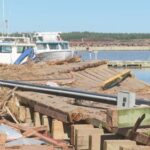 ‘Everything is unusable’: Fishers, farmers assess damage as Fiona wreaks havoc on industry – Officials have said areas exposed to storm surges have seen the most severe damage from the storm. In Morell, the Red Head Harbour wharf was almost completely totalled. Ken Drake was one of the fishers who spent Friday night there keeping an eye on their boats. He said all the boats have at least some damage. >click to read< 08:05
‘Everything is unusable’: Fishers, farmers assess damage as Fiona wreaks havoc on industry – Officials have said areas exposed to storm surges have seen the most severe damage from the storm. In Morell, the Red Head Harbour wharf was almost completely totalled. Ken Drake was one of the fishers who spent Friday night there keeping an eye on their boats. He said all the boats have at least some damage. >click to read< 08:05
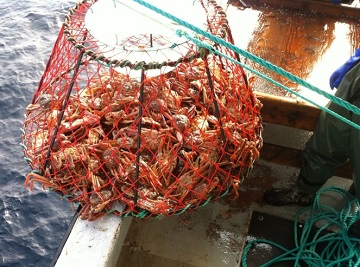
FFAW, N.L. government team up in push back against lobster, snow crab being labeled foods to avoid
Monterey Bay Aquarium’s Seafood Watch program which runs what it calls a science-based seafood recommendation list to inform consumers, chefs, and business professionals, placed all Canadian lobster and snow crab on an “avoid” list because of what the group calls a potential impact for North Atlantic right whales to become entangled in fishing gear. But Jason Spingle, secretary treasurer of the Fish, Food and Allied Workers (FFAW), says the snow crab and lobster recommendation is “totally unfounded.” Spingle said of the hundreds of harvesters he has heard from, none have actually seen a right whale while fishing. What’s more, Spingle said, he only knows of two sightings in Newfoundland waters, neither during lobster fishing season and zero reports of entanglements. >click to read< 07:37
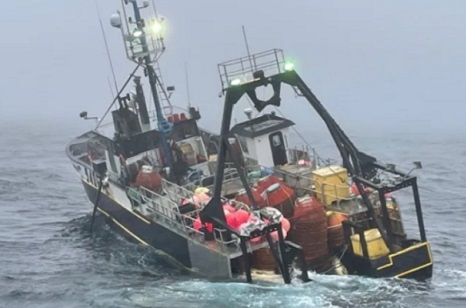
Supply ships, Coast Guard help rescue seven people and two dogs from sinking fishing vessel
“This was a good day. This is as best as you can hope for in a situation that’s grave like this,” said Mark Gould, a regional supervisor with the Coast Guard’s Marine Search and Rescue. The mayday call came around 1:00 a.m. from the F/V Gypsy Mariner, a fishing boat from Quebec, as it was taking on water about 60 nautical miles off St. John’s. The Maritime Rescue Sub Centre directed all nearby vessels to the scene. The two supply ships, the Atlantic Griffon and the Atlantic Shrike, and a Canadian Forces Hercules aircraft were the first to arrive at the scene. A Coast Guard cormorant helicopter arrived about 30 minutes later. “We did drop a pump to the vessel just in case there was a way to save it, but it quickly became clear that that wasn’t going to be an option,” >click to read< 21:33

F/V Villa de Pitanxo: “this is very similar to the Alvia, the Yak-42 and Spanair, politicians who do not assume their responsibilities”
The families of the 21 deceased in the Villa de Pitanxo traveled this Friday to the Sub delegation of the Government in Pontevedra to read a manifesto in which they show their discomfort with the central Government of Pedro Sánchez for failing to fulfill its commitment to “do everything possible and impossible” to investigate what happened. The promise was made by the president on the night of February 21, when the nine bodies located in Terranova arrived by plane to Santiago de Compostela, and almost six months later they remind him that “he does not fulfill his commitment.” Kevin González, son of one of those killed in the shipwreck, read the statement on behalf of the 21 families of those killed in the shipwreck, accompanied by a small representation of relatives and two banners with the faces of the sailors who did not survive the sinking and with their claims. Photos, >click to read< (you may need to click translate)16:27
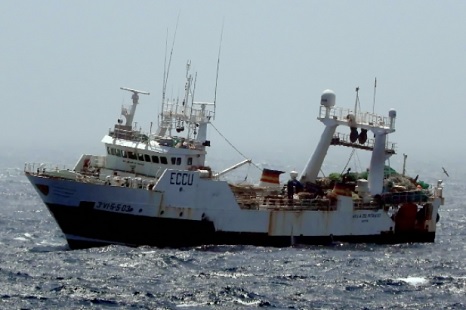
How did a captain survive? – The mysterious death of 21 men on a Spanish fishing boat
On 15 February, the Villa de Pitanxo, a Galician fishing boat sank off the coast of Canada in mysterious circumstances. The families of 21 men who lost their lives that night are campaigning to ensure the truth of the tragedy is revealed and that those responsible face justice. Investigators have been trying to understand what caused the accident and surviving crew members have very different versions of what went wrong. Video, >click to watch< 10:49
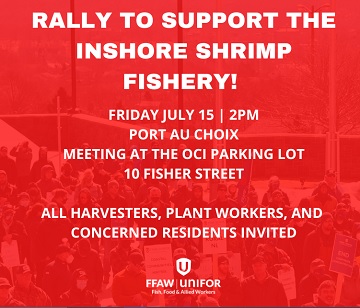
FFAW RALLY NOTICE – PORT AU CHOIX JULY 15
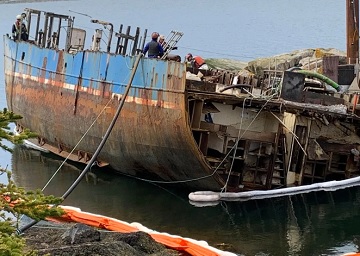
Crews in Colliers carefully dismantle shipwrecked fishing vessel
A ship that sank in Newfoundland’s Conception Bay 16 years ago is now being demolished and will be recycled, according to the Canadian Coast Guard. The Hamilton Banker has a lengthy history. The fishing vessel sank in June 2006 in Harbour Grace, before being refloated and towed to nearby Colliers. Andrew Wakeham, a senior response officer with the coast guard’s environmental response program, says the ship eventually drifted ashore and ran aground during the January 2020 blizzard known as Snowmageddon, and has remained there ever since. photos, Video, >click to read< 12:06
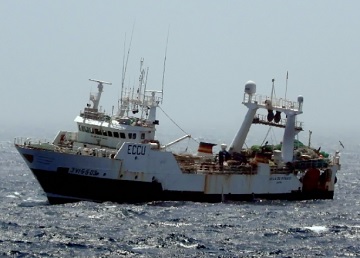
F/V Villa de Pitanxo: Spanish fishing tragedy survivors appear in court amid negligence claims
The survivors of Spain’s worst fishing tragedy in four decades appeared in court on Monday as part of an investigation into claims the boat’s captain was guilty of negligence. Twenty-one people died when the Villa de Pitanxo, a 50m vessel from the northwestern region of Galicia, sank around 450km off the coast of Newfoundland, in Canada, in February. Three of the 24-strong crew survived and were found floating in a life raft: the boat’s captain, Juan Padín, his nephew, Eduardo Rial, and Samuel Kwesi. Nine bodies were recovered. >click to read< 16:30
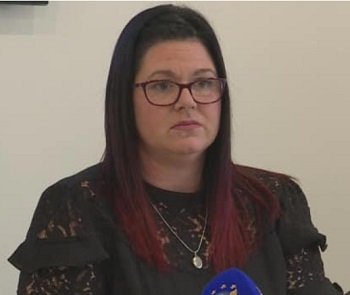
Report on deaths of 4 fishermen in Placentia Bay leaves family still looking for answers
The wife of a fisherman who died when the Sarah Anne fishing boat sank nearly two years ago says her family is still without answers, following the release of the Transportation Safety Board of Canada’s investigation report Wednesday. Melissa Mayo-Norman said Wednesday was an emotional day for her and the other families, who are still mourning the May 2020 loss of the Sarah Anne’s four-man crew of Scott Norman, 35, Mayo-Norman’s husband, Eddie Joe Norman, 67, Jody Norman, 42, and Isaac Kettle, 33, all from St. Lawrence, on Newfoundland’s Burin Peninsula. “We were hoping for some closure, which we didn’t receive,” Mayo-Norman said. “Unfortunately we were given no answers as to what may have happened that day, only what recommendations they could give for the Newfoundland fishermen.” > click to read < 09:11

Transport Canada – DFO issuing fishing licences in N.L. without checking boat registrations
An investigation into a fatal 2020 fishing accident in Newfoundland has prompted the Transportation Safety Board to call on the federal Fisheries Department to change the way it issues fishing licences. The board is asking the department to ensure all Canadian commercial fishing vessels are registered with Transport Canada before issuing fishing licences. Safety board chair Kathy Fox said Wednesday that an investigation into the sinking of a crab fishing boat that killed four men revealed that more than 4,000 fishing vessels in Newfoundland and Labrador were registered with the Fisheries Department but not with Transport Canada. > click to read < 12:01
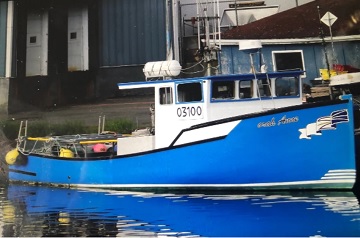
TSB Report: F/V Sarah Anne likely capsized suddenly, causing the deaths of all 4 men aboard.
Clifford Harvey, the Transportation Safety Board of Canada’s director of marine investigation, said the absence of life-saving equipment and distress signals support the conclusion that the vessel’s capsizing took the crew by surprise. The crew, skipper Eddie Joe Norman, 67; his son, Scott Norman, 35; his nephew, Jody Norman, 42, and Isaac Kettle, 33, left St. Lawrence, on Newfoundland’s Burin Peninsula, shortly after midnight on May 25, 2020, to fish for snow crab in Placentia Bay. The vessel was last seen 10:30 a.m. that day and was reported missing at 7:45 p.m. when it was overdue for its return. Harvey said the Sarah Anne was not equipped with a vessel monitoring system or an automatic identification system. >click to read< 11:40
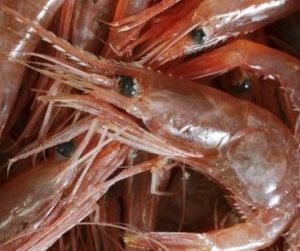
Minister Ignores Established Precautionary Approach for Shrimp – Slashes Quotas in Struggling Fishery
Minister Joyce Murray’s decision today to slash quotas in the Gulf of St. Lawrence shrimp fishery is a significant blow for harvesters and plant workers who have already experienced drastic cuts over the last number of years. A cut of nearly 20 per cent in Shrimp Fishing Area (SFA) 8 in the Gulf of St. Lawrence is contrary to the recently established Precautionary Approach (PA), showing Minister Murray’s lack of commitment to collaborative fisheries management. >click to read< 08:58
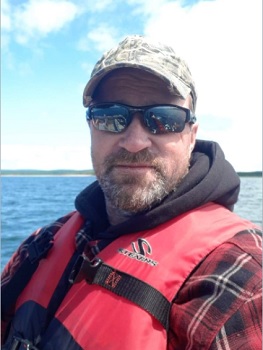
Will Atlantic Canada lobster season break another sales record? Or will inflation curb consumer appetite,,,
Roger Fowlow is paying a lot of attention to the long-range marine forecast these days. Lobster season opens soon and he’s hoping the unsettled spring weather will ease off, giving him light winds to set his lobster pots. He used to catch cod, but with quotas so low, cod prices stalled for years at less than a dollar a pound, and fuel prices soaring this year. He said it’s not worth bothering with. Lobster is the money maker, and the last few years have given him good catches and good prices. Fowlow is confident of good catches again this year. But on the question of the price he might get paid, he’s not so certain. For P.E.I. lobster fisher Bethany McCarthy, inflation is already driving up the cost of running her boat. In addition to higher prices for fuel, she’ll have to shell out more money for bait this year, thanks to DFO’s decision to kill the mackerel fishery. photos, video, >click to read< 12:15
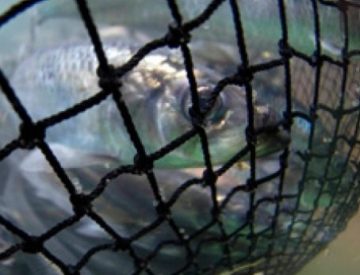
Ottawa announces closure of Atlantic mackerel, bait fisheries to restore stocks
Fishers on the East Coast are expressing their disappointment with Ottawa after DFO closed the Atlantic mackerel and commercial bait fisheries, citing concerns that dwindling stocks have entered a “critical zone.” The department said in a release Wednesday it was taking “urgent action” to help preserve the stock of southern Gulf spring herring and Atlantic mackerel with the closures in Atlantic Canada and Quebec. Fisheries Minister Joyce 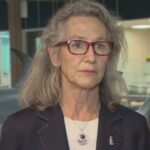 Murray said she recognizes many harvesters depend on the fisheries, and she promised to work with them and others in the industry to preserve the stocks. Fishers in the sector, however, want the decision reversed. Martin Mallet, “It’s going to have a major impact — an atomic bomb impact — on our whole East Coast fishery, from Newfoundland to Quebec to southwest Nova Scotia,” >click to read< 18:52
Murray said she recognizes many harvesters depend on the fisheries, and she promised to work with them and others in the industry to preserve the stocks. Fishers in the sector, however, want the decision reversed. Martin Mallet, “It’s going to have a major impact — an atomic bomb impact — on our whole East Coast fishery, from Newfoundland to Quebec to southwest Nova Scotia,” >click to read< 18:52

Hundreds of Newfoundland fishermen protest prices, pressing minister for changes
Fishermen from across the Avalon Peninsula took their complaints and concerns about pricing for this year’s inshore fishery straight to Fisheries Minister Derrick Bragg in St. John’s on Monday, with a concurrent protest happening in Corner Brook. For fish harvesters like Conway Caines, the $12 per pound in Cape Breton this season is proof enough harvesters in Newfoundland and Labrador deserve more than last year’s $7.60 a pound. The Port Saunders man said he managed to get by in 2021 but said that price isn’t good enough given the higher cost of living this season. “I ain’t got no big quotas. I got enough to pay me instalments, feed me family and try to give me crew a decent share.” >click to read< 08:45

Fisheries Minister Confronted by Protestors at FFAW Rally
Fisheries Minister Derrick Bragg stepped into a lion’s den earlier today as he addressed a crowd gathered at an FFAW protest. The Union organized rallies in St. John’s and Corner Brook to highlight issues around the setting of fish prices. The crowd was loud during the initial speeches, but things took a turn when provincial Fisheries Minister Derrick Bragg took to the microphone. Bragg faced heavy criticism from the vocal crowd on the steps of Confederation Building during his speech. photos, video, >click to read< 16:05
FFAW Demonstrations Tomorrow (Monday)
FFAW-Unifor is holding demonstrations for all members and community supporters on Monday, March 28 at 11 am at the Confederation Building in St. John’s & Civic Centre in Corner Brook to call attention to unfairness in the setting of fish prices. For years we have asked the provincial government to move forward with policies that would hold processing companies more accountable and to increase competition in fish processing. In particular, we have demanded: >click to read< 20:30







